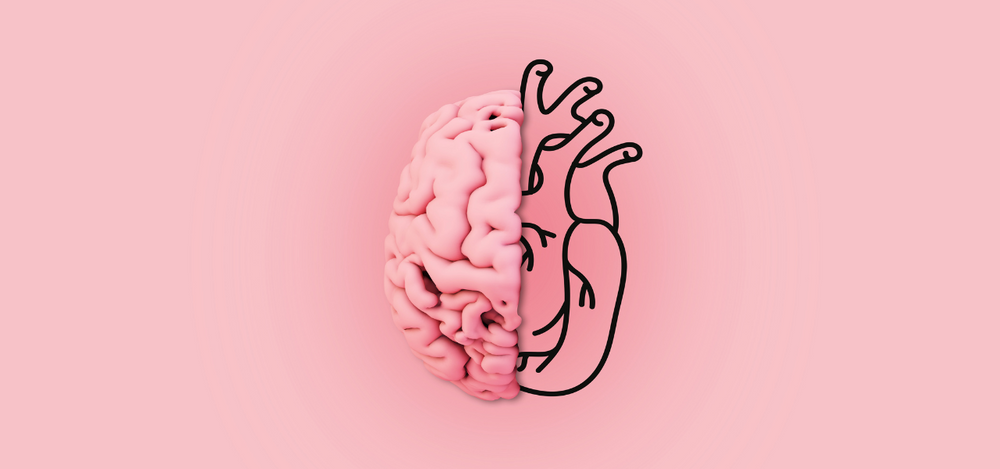Can You Slow Down Alzheimer’s by Taking Care of Your Heart?

Alzheimer’s disease and heart disease are two of the most significant health challenges we face today - and top the list of conditions my patients want to avoid. But what if these two seemingly separate conditions were more connected than we ever thought? A new study suggests that the health of our hearts and brains might be more closely linked than we imagined and that this connection could hold the key to slowing down the onset - and progression - of Alzheimer’s disease.
The Role of the Blood-Brain Barrier
When I was in medical school, I spent a lot of time learning about the endothelium - the thin layer of specialized cells that lines the inside of blood vessels. This layer governs what enters artery walls (like cholesterol) and determines how well blood vessels dilate (like in response to exercise).
I also learned that inside the brain the endothelium is a bit different. There, endothelial cells are so tightly packed that there’s almost no space for anything to slip through without help. This fairly impervious “blood-brain barrier” is designed specifically to protect the brain from being infiltrated by unwanted visitors and compounds, keeping bacteria, viruses and many potential toxins out.
As we age, this barrier can develop tiny imperfections that make it less effective. And new research is showing that it’s the changes in the blood-brain barrier that might be a key factor leading to the development of Alzheimer’s disease, preceding noticeable symptoms like memory loss.
White Matter: The Brain's Information Superhighway
So, what happens when the blood-brain barrier starts to break down? The answer lies in white matter, the part of the brain responsible for transmitting nerve impulses quickly and efficiently. Unlike gray matter, which is made up of neural cell bodies, white matter consists of myelinated axon fibers that transmit instructions essential for tasks like memory, problem-solving, and coordination.
Researchers have discovered that when the blood-brain barrier becomes damaged, oxidative stress and inflammation can be seen within brain tissue. This, in turn, can negatively affect the efficiency of signal transmission within white matter, resulting in cognitive issues and memory deficits—the hallmark symptoms of Alzheimer’s disease.
New Insights from Recent Research
A recent study, in which researchers examined the brains of 28 individuals over the age of 65, revealed that brain blood vessels from those with Alzheimer’s disease didn’t dilate properly - a clear sign of endothelial dysfunction. In addition, they saw increased numbers of astrocytes in Alzheimer brains. Astrocytes are specialized brain cells that normally help regulate the exchange of nutrients and waste between the brain and blood. In the Alzheimer’s patients, these cells appeared more reactive and inflammatory, another indication of a weakened blood-brain barrier - and a mechanism through which white matter signal transmission could be affected.
Why This Matters
The good news is that unlike neurodegeneration, which is often irreversible, the inflammation and damage to the blood-brain barrier might be something we can address through lifestyle changes. After all, eating an anti-inflammatory diet, exercising regularly, quitting smoking, and improving blood pressure, blood sugar and cholesterol levels have all been shown to improve endothelial function in heart arteries.
They may be more tightly packed, but brain endothelial cells there are just like the ones found in the heart and should respond positively to the same positive lifestyle changes. In other words, by preventing endothelial dysfunction in general (or stopping its progression) we might be able to extend the period of normal cognitive function in people with Alzheimer’s disease.
The Bottom Line
Taking care of your heart isn’t just about preventing heart disease—it’s also about keeping your brain healthy as you age. The research is clear: heart health and brain health are inextricably linked. At Step One Foods, we’re proud to offer products proven to lower cholesterol that are made from real, whole-food ingredients. While we can’t claim that Step One Foods prevents Alzheimer’s disease (we haven’t conducted that trial), given the central role of blood vessel function in both heart and brain health, we believe we can help.
By making strategic dietary choices today, you’re also investing in the long-term health of your brain—and possibly reducing your risk of Alzheimer’s disease down the road. Sprinkle anyone?

Tested & Proven Results.
- Cardiologist formulated
- Supported by over 500 publications
- Clinically-proven, in a double-blind randomized trial with Mayo Clinic and The University of Manitoba
80% of participants lowered their cholesterol in just 30 days. With just two servings per day, Step One Foods offers a proven-effective way to naturally lower LDL (bad) cholesterol.
Get heart health tips and articles like this, delivered right to your email.
New articles every week.
You may also like...

You don’t need to avoid foods with cholesterol…except for these




